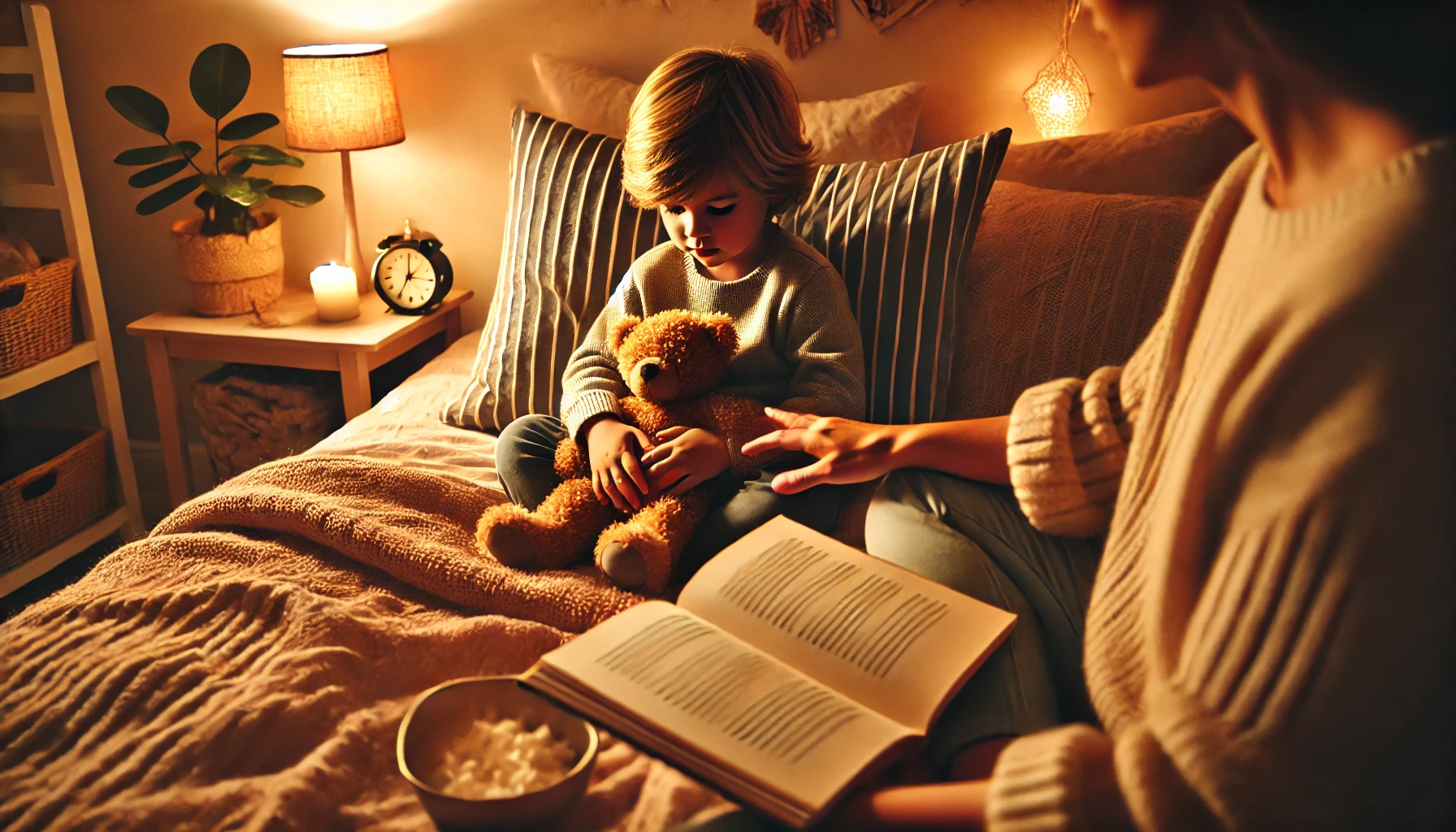How to Teach Young Children About the Importance of Rest and Sleep
Teaching young children about the importance of rest and sleep helps them develop healthy habits that support growth, learning, and emotional well-being. When kids understand why sleep is essential, they are more likely to embrace bedtime routines and develop a positive attitude toward rest. Parents can encourage good sleep habits through bedtime routines, calming activities, and leading by example. In this article, we’ll explore practical ways to help children understand and appreciate the value of sleep.
Why Teaching Kids About Sleep is Important
- Supports physical growth – Sleep helps the body grow and repair itself.
- Improves focus and learning – Well-rested children perform better in school and daily activities.
- Boosts emotional regulation – Sleep helps kids manage their emotions and reduce stress.
- Strengthens the immune system – Proper rest helps the body fight off illness.
- Encourages lifelong healthy habits – Establishes good sleep routines for the future.
1. Teach Kids Why Sleep is Important
Helping children understand why they need rest encourages better sleep habits.
Activity Idea:
- Use simple explanations: “Sleep gives us energy to play, learn, and grow!”
- Compare a well-rested child to a tired and grumpy child to show the difference.
- Ask, “How do you feel when you get a good night’s sleep?”
What Kids Learn:
- That sleep is essential for feeling good and strong.
- How rest helps them play and learn better.
- The importance of getting enough sleep every night.
2. Create a Relaxing Bedtime Routine
A consistent bedtime routine helps children transition smoothly to sleep.
Activity Idea:
- Follow a simple bedtime routine: bath, pajamas, storytime, and lights out.
- Use soft music or white noise to create a calming sleep environment.
- Have a wind-down period with dim lighting and quiet activities.
What Kids Learn:
- That bedtime routines help their bodies relax.
- How consistency makes sleep easier and more restful.
- The importance of preparing for sleep in a calm way.
3. Read Books About Sleep and Rest
Stories help children understand why sleep is important in a fun way.
Activity Idea:
- Read The Going to Bed Book by Sandra Boynton (about bedtime routines).
- Ask, “Why do the characters need sleep?”
- Encourage kids to talk about their own bedtime experiences.
What Kids Learn:
- That everyone needs sleep to function well.
- How routines make bedtime easier.
- The joy of winding down with a bedtime story.
4. Set a Regular Sleep Schedule
Going to bed and waking up at the same time every day helps regulate children’s sleep patterns.
Activity Idea:
- Set a consistent bedtime and wake-up time, even on weekends.
- Use a visual clock or chart to show bedtime and morning routines.
- Celebrate good sleep habits: “Great job going to bed on time!”
What Kids Learn:
- That regular sleep schedules help them feel better.
- How consistency improves rest.
- The importance of following a routine every night.
5. Teach Kids That Rest is Important, Even Without Sleep
Encouraging quiet time helps children relax even if they’re not tired.
Activity Idea:
- Set up a cozy rest area with books, pillows, and stuffed animals.
- Encourage relaxing activities like coloring or listening to soft music.
- Use the phrase “Even if you’re not sleepy, your body still needs rest.”
What Kids Learn:
- That resting helps them recharge.
- How quiet time benefits their mood and energy.
- The importance of listening to their bodies.
6. Reduce Screen Time Before Bed
Limiting screens before sleep helps children fall asleep faster and rest better.
Activity Idea:
- Set a “no screens an hour before bed” rule.
- Offer alternative bedtime activities like puzzles or storytelling.
- Explain why screens can make it harder to sleep: “The bright light tells our brain to stay awake.”
What Kids Learn:
- That screen time affects their ability to sleep well.
- How winding down before bed improves sleep quality.
- The benefits of choosing quiet activities instead of screens.
7. Encourage Physical Activity During the Day
Active kids sleep better, so movement throughout the day helps improve sleep.
Activity Idea:
- Encourage outdoor play, dancing, or sports to use up energy.
- Create a fun movement challenge to keep kids active.
- Avoid high-energy play right before bed to help with relaxation.
What Kids Learn:
- That exercise helps them sleep better.
- How active play and rest work together.
- The importance of balancing movement and relaxation.
8. Praise and Reinforce Good Sleep Habits
Encouraging children when they follow their sleep routine helps build positive habits.
Activity Idea:
- Say, “You went to bed on time and woke up feeling great—awesome job!”
- Use a “Sleep Star Chart”, where kids earn stickers for good sleep habits.
- Ask, “How do you feel after a good night’s rest?” to reinforce the benefits.
What Kids Learn:
- That sleep is essential for feeling happy and energized.
- How good habits lead to better rest.
- The motivation to continue following a bedtime routine.
Final Thoughts
Teaching young children about the importance of rest and sleep helps them develop healthy habits that support their growth, mood, and energy levels. By creating a bedtime routine, reducing screen time, and reinforcing positive sleep behavior, parents can guide children toward a restful and refreshing night’s sleep every day.
